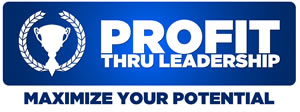Employers are always seeking top talent and when they find them, they work hard to keep them on their Teams. What I’ve noticed is that sometimes the people who are asked to leave a company are the ones who weren’t contributing to the degree that they could have. As a result, they were expendable.
If you’re a member of any organization, what are you doing to ensure you’re not expendable? How often do you think about what you can do to add value to your employer and become indispensable?
I looked up both words in The American Heritage Dictionary of the English Language. Below are the definitions I found:
Ex-pend-a-ble adj. Suitable for sacrifice if required; not essential to preserve.
In-dis-pen-sa-ble adj. Incapable of being dispensed with; essential; required.
Since I work with business owners, I know the emotional and mental toll it takes on them when they have to let a member of their Team go. It is a very difficult decision for them to make, and it’s not taken lightly. As part of their decision making, they evaluate attitude, work ethic, goal-orientation, use of time, personal organization, desire to grow, ability to adapt and embrace change, and willingness to do whatever it takes to help the company be successful.
I think that many (not all) of the individuals who find themselves a casualty of reduction in force moves by their employer have contributed to their own demise. They were expendable instead of indispensable.
To become indispensable, you need to think like a business owner and bring value to your employer. You want to ensure that every day you come to work, that you’re doing one or more of the following things…
- Help attract new customers. You can do this by bringing in leads and opportunities to do business with people you know. Who in your world can benefit from the services and products your company provides? Give their names and phone numbers to the sales professionals in your organization to follow up on. If you use them, do you also buy the products and services of the company that pays your salary? If not, what’s standing in the way?
- Help retain existing customers. Find ways to create exceptional customer experiences. If you directly interact with customers, make their experience memorable. Be upbeat, positive and always smiling. Make your customers, callers and visitors feel welcome and appreciated. They will want to keep coming back. They will also tell others about you and your company. If you don’t directly interact with customers, suggest ideas that will improve customer service. Do your job to the best of your ability, so the end product and service is high-quality and customers will keep buying.
- Help increase business with existing customers. Look for opportunities to further serve your customers. Many times customers are not fully aware of a business’ full product and service offerings. Help them to become aware. Other customers simply need suggestions, encouragements or reminders…Think: “Do you want fries with that?”
- Help reduce costs and expenses. Look for waste in time and resources in your company and make suggestions or take action to eliminate them. The more money a business wastes, the less there is to use for growth, employee performance rewards and other benefits. It’s in the best interests of each member of an organization to help reduce their employer’s costs and improve profitability.
- Take initiative. This is another big one that an employer evaluates when deciding who to keep. Be the kind of person who doesn’t have to be told what to do. Look for ways to add value and go above and beyond your normal job duties. See something that needs to be done? Do it. If you see a co-work buried in work, ask if you can help out. There are a ton of ways to demonstrate initiative. Be creative.
- Learn something new and enhance your knowledge, skills and abilities. What is the last book you read that dealt with your personal and professional growth and development? When was the last time you took a seminar, webinar or workshop? When your employer offers training, how well do you pay attention and use what you learn? I believe that a person and an organization are either green and growing or ripe and rotting…there is no in-between. Once you think you’ve “arrived”, you’re dying on the vine. Superstar athletes and extremely successful business professionals recognize they have to continue to grow and learn (no matter how great they are) if they want to keep their leadership role. If they ever get comfortable, someone else will pass them by.
- Be organized and use your time well…work smart. Do you plan and write down what you want to accomplish each day? Do you consistently use a calendar system to remind you of tasks and to schedule appointments? Are you focused and spend 80% of your time on your mission critical activities/priorities? Working long hours doesn’t always translate into working smart or accomplishing goals. Challenge yourself each day, all day to answer this question: “Is this the best use of my time at this moment in time?” See what changes you make as a result of your answer and how that impacts your goals and success.
What employer would want to part ways with a team member who consistently does the above things? Talk about job security! The kind of person who does the above will become indispensable to their employer. They will have opportunities galore as the company grows. As the business prospers, so will its members.
How many of the above things do you do on a consistent basis?

